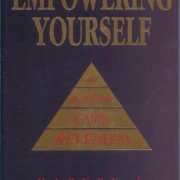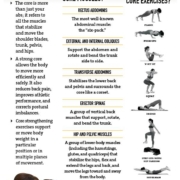The Connection Between MSK Health and Sleep: Restorative Sleep for Recovery
Rest Easy, Recover Strong: The Link Between Sleep and MSK Health
We all know how crucial sleep is for feeling our best. But did you know that quality sleep is also vital for a healthy musculoskeletal system? That’s right – getting enough shut-eye isn’t just about having energy; it’s a key player in healing, repairing, and keeping your muscles, bones, and joints in tip-top shape.
Why Sleep Matters for Your Muscles, Bones, and Joints
Think of sleep as your body’s nightly repair crew. While you snooze, your body gets busy:
Muscle Repair and Growth: During deep sleep, your body releases growth hormone, which helps repair and rebuild muscle tissue that’s been broken down during exercise or daily activities.
Reduced Inflammation: Sleep helps regulate inflammation levels in the body. This is especially important for people with musculoskeletal conditions like arthritis, where inflammation plays a significant role in pain and stiffness.
Tissue Regeneration: Sleep is prime time for your body to repair and rebuild tissues throughout your entire system, including cartilage, tendons, and ligaments.
Pain Management: Getting enough sleep can actually improve your pain threshold. When you’re sleep-deprived, your body produces more stress hormones, which can make you more sensitive to pain signals.
Sleepless Nights Leading to Aches and Pains?
Not getting enough sleep, or having poor quality sleep, can negatively impact your musculoskeletal health in several ways:
Increased Risk of Injury: Fatigue and decreased reaction time from lack of sleep can make you more prone to accidents and injuries.
Slower Healing: Sleep deprivation can slow down the healing process for muscle strains, sprains, fractures, and surgeries.
More Pain: Lack of sleep can make you more sensitive to pain and increase feelings of stiffness and discomfort.
Worsening of Existing Conditions: Poor sleep can exacerbate symptoms of musculoskeletal conditions like arthritis, fibromyalgia, and low back pain.
Tips for a Restorative Night’s Sleep
Ready to prioritize your sleep for a healthier musculoskeletal system? Here’s how:
Create a Relaxing Bedtime Routine:
Establish a Consistent Sleep Schedule: Go to bed and wake up around the same time each day, even on weekends, to regulate your body’s natural sleep-wake cycle.
Unwind Before Bed: Take a warm bath, read a book, or listen to calming music to signal to your body that it’s time to sleep. Avoid screen time for at least an hour before bed.
Optimize Your Sleep Environment: Make sure your bedroom is dark, quiet, and cool. Invest in blackout curtains, earplugs, or a white noise machine if needed.
Support Your Sleep Through the Day:
Stay Active: Regular physical activity can improve sleep quality. Aim for at least 30 minutes of moderate-intensity exercise most days of the week.
Watch Your Diet: Avoid large meals, caffeine, and alcohol close to bedtime.
Stay Hydrated: Drink plenty of water throughout the day, but limit fluids in the evening to prevent nighttime bathroom trips.
Talk to Your Doctor:
Rule Out Sleep Disorders: If you consistently struggle with sleep, talk to your doctor. You may have an underlying sleep disorder like insomnia or sleep apnea that requires treatment.
Discuss Your Medications: Some medications can interfere with sleep. If you suspect this is the case, talk to your doctor about potential alternatives or adjustments.
Sweet Dreams, Strong Body
Prioritizing sleep is one of the best things you can do for your overall health, including the health of your musculoskeletal system. By making simple changes to your daily routine and seeking professional guidance when needed, you can improve your sleep quality and support your body’s natural healing and recovery processes.









